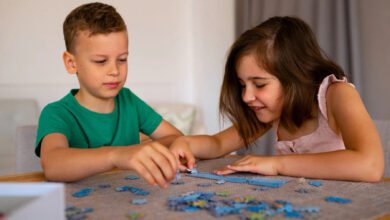6 Daily Habits That Make Your Child Trust You and Open Up

Every parent wants to be the person their child turns to for the big, hard, and exciting things. We want our children to feel safe asking questions and sharing emotions. But trust doesn’t just happen because we say, “You can talk to me.”
It happens when we go first with honesty, vulnerability, and openness.
As a dual-certified child life specialist and therapist, I’ve supported families through some of the hardest conversations: illness, trauma, loss. And I’ve learned this truth again and again: When children see emotional openness modeled daily, they’re more likely to open up themselves.
Six Ways to Build Trust with Your Child, Every Single Day
1. Normalize Talking About Feelings
Name your own emotions out loud, even the uncomfortable ones. “I’m feeling a little worried we’re running late. Let’s work together.” When children see us acknowledge feelings, they learn it’s safe to do the same.
2. Don’t Avoid the Hard Stuff
Avoiding uncomfortable topics teaches children what not to bring up. Whether it’s a dead bug or a tough question about disability, lean in. Create a home where curiosity is welcomed and honesty is part of everyday life.
3. Be Honest About Your Own Challenges
If discussing feelings is hard for you, say so. “I didn’t grow up sharing emotions, but I want to do that with you.” That vulnerability builds connection and models emotional growth.
4. Model, Don’t Interrogate
Instead of “How was your day?” (cue the one-word answer), try this: “Today was a rollercoaster. I felt excited, then frustrated, and ended up feeling proud.” Children learn reflection by watching you do it.
5. Make Real Talk Routine
Build sharing into your day. At our dinner table, we do “high-low-high”, a highlight, a hard moment, and another bright spot. Even our toddler joins in. It’s a simple, powerful way to practice emotional connection.
6. Teach Coping Skills Alongside Emotions
After naming a tough feeling, share what helps: “When I feel frustrated, I take deep breaths to calm down.”
Practice together. Show that managing emotions is something we can all learn.
Trust is Built in the Small Moments
Your child is always watching. Not just what you say, but how you handle your own emotions, how you respond to theirs, and what you make space for.
If you want your child to trust you with the big things, show them they can trust you with the small ones. Validate their feelings. Show up honestly. And create space for real conversations, even the messy ones.
Go first. They’re learning how by watching you.





